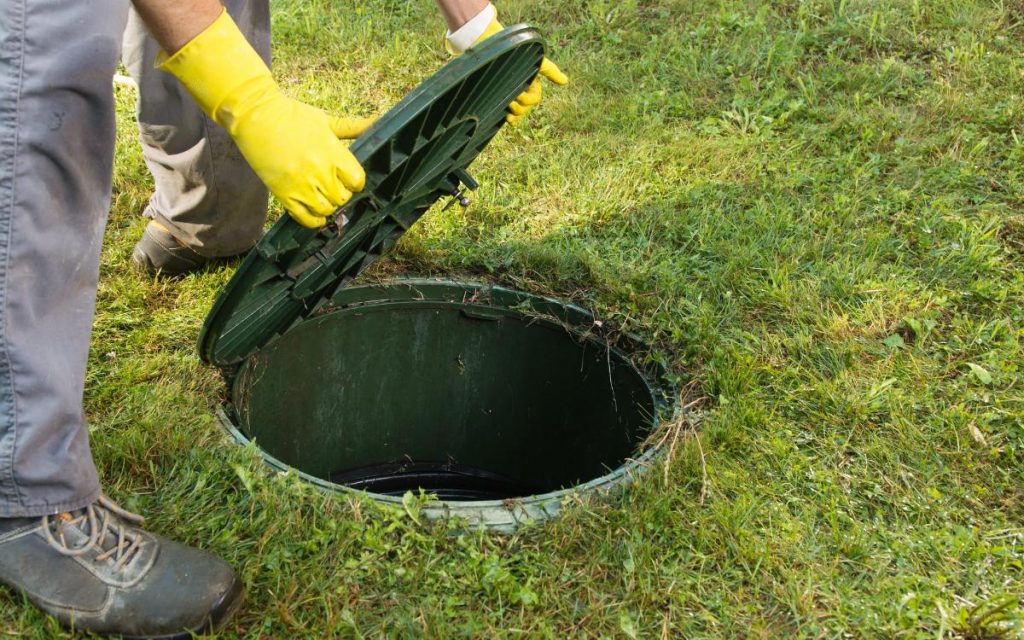How Often Should a Residential Septic Tank Be Professionally Pumped
Typically, you should get your residential septic tank professionally pumped every 3 to 5 years. The exact interval depends on factors like tank size, household usage, and local soil conditions. Signs your tank needs pumping include slow drains, sewage backups, and lush grass growth. Neglecting maintenance leads to costly repairs, while proper care protects your home and the environment. To learn more about optimizing your septic tank’s longevity, read on.
Factors Affecting Septic Tank Pumping Frequency
Several factors determine the frequency at which you should have your septic tank pumped.
The tank’s capacity plays a significant role – larger tanks need less frequent pumping compared to smaller ones.
Additionally, the soil composition surrounding your septic system impacts the pumping schedule. Clay-based soils, for instance, can slow down drainage, requiring more frequent maintenance.
By understanding these variables, you can work with your local septic service provider to develop a pumping plan that suits your home’s unique needs.
Staying on top of this task guarantees your system functions efficiently and prevents costly repairs down the line.
Average Septic Tank Pumping Intervals
Typically, septic tanks require pumping every 3 to 5 years. Your tank’s capacity and pumping history will determine the ideal interval.
A larger tank may need pumping less often, while a smaller tank or one with heavy use may require more frequent service.
Don’t wait until it’s too late – have a professional septic service inspect your system and provide a recommendation. They’ll guarantee your tank is working efficiently and prevent costly repairs down the line.
Staying on top of pumping is the best way to keep your septic system in top shape and your home’s plumbing running smoothly.
Signs Your Septic Tank Needs Pumping
Your septic tank may require pumping if you notice any of these telltale signs. Slow draining sinks or toilets signal an issue with your septic system. If you see sewage backing up into your home, that’s a clear indicator it’s time to call a professional. Lush, green grass above your septic tank can also suggest it’s getting too full.
Consider your tank’s capacity and pumping history to determine if maintenance is needed.
Signs Your Septic Tank Needs Pumping:
- Slow Draining Sinks/Toilets
- Sewage Backup
- Lush Grass Over Tank
- Tank Capacity
- Pumping History
Act quickly to avoid costly repairs. Proper septic tank maintenance protects your home and the environment.
Consequences of Neglecting Septic Tank Maintenance
If you neglect regular septic tank maintenance, it can lead to costly and potentially hazardous consequences.
When your septic tank fails, the system’s collapse can cause sewage to back up into your home or pool on your property. This not only creates a messy and foul-smelling situation, but it also poses serious health risks.
Without a properly functioning septic system, you could face substantial repair bills, diminished property value, and even legal issues if the problem affects your neighbors. Don’t risk the consequences – stay on top of your septic tank maintenance to avoid these problems.
Preparing for a Septic Tank Pumping Service
When scheduling a septic tank pumping service, there are a few steps you can take to prepare. First, inspect your tank and note any issues. Then, check if you need septic permits for the service. This’ll help the technicians do their job efficiently.
You’ll also want to clear the area around the septic tank access to guarantee easy access.
On the day of service, be home to answer any questions and oversee the process. Afterward, ask the technician for maintenance tips to keep your system running smoothly.
With a little prep, you’ll have a seamless septic tank pumping experience.

Choosing a Reputable Septic Tank Pumping Provider
Selecting a reliable septic tank pumping provider is crucial for maintaining your system’s functionality and longevity.
Conduct thorough provider research to guarantee they’re licensed, insured, and have a proven track record of quality work. Check reviews, ask for references, and inquire about their equipment and disposal methods.
A reputable provider should prioritize your needs, communicate openly, and offer a warranty on their services. Don’t hesitate to ask questions – a trustworthy provider will gladly address your concerns and guide you through the process.
Quality assurance is the key to a smooth and successful septic tank pumping experience.
Techniques for Prolonging Time Between Pumping
Proper septic tank maintenance can extend the time between costly pumping services. Have your tank inspected regularly – this helps identify potential issues before they become major problems.
Practicing septic maintenance like avoiding harsh chemicals, spreading out laundry loads, and limiting food waste can prolong the life of your system. Conserve water and fix leaks to minimize strain on the tank. Landscaping with shallow-rooted plants instead of trees prevents root intrusion.
With a little care, you can maximize the interval between professional septic tank pumpings and save money in the long run.
Integrating Septic Tank Pumping Into Your Home Maintenance Routine
Though septic tank pumping may not be the most exciting aspect of home maintenance, it’s a crucial task that should be integrated into your regular routines. By making this a priority, you’ll guarantee your system functions properly and avoid costly repairs down the line.
Consider these tips:
- Schedule routine inspections with a professional to assess your tank’s condition and determine the ideal pumping frequency.
- Note the tank’s installation date and plan to have it pumped every 3-5 years, or as recommended by your inspector.
- Set reminders to check your tank’s sludge and scum levels annually.
- Maintain records of all septic system work performed.
- Incorporate septic tank maintenance into your spring or fall home maintenance checklist.
Septic Tank Pumping and Environmental Sustainability
As you prioritize routine septic tank pumping, consider the environmental impact of this maintenance task. Eco benefits abound when you properly maintain your septic system.
Regular pumping prevents backups and overflows, keeping harmful contaminants out of local waterways. This green solution reduces the risk of groundwater pollution, protecting nearby ecosystems.
Plus, well-functioning septic tanks consume less energy, lowering your carbon footprint. By embracing sustainable septic practices, you play a crucial role in safeguarding the environment.
Your commitment to routine pumping demonstrates your environmental stewardship, contributing to a healthier community and planet.
Frequently Asked Questions
Can a Septic Tank Be Pumped Too Frequently?
Yes, you can pump your septic tank too frequently. The ideal frequency depends on your household usage, and typical pumping intervals range from 3-5 years. Pumping too often can disrupt the tank’s natural processes and lead to issues.
How Much Does a Septic Tank Pumping Service Cost?
The cost of septic tank pumping services can vary, but you’ll typically pay between $300-$500. Regular maintenance fees are worth it to keep your system running smoothly and avoid costly repairs down the line.
Can I Perform Septic Tank Maintenance Myself?
You can try DIY septic tank maintenance, but be aware of the risks. Personal safety should be your top priority. Professionals have the right tools and expertise to properly maintain your system – it’s worth the investment to keep your septic tank running smoothly.
What Happens if I Sell My Home With a Septic System?
When selling your home with a septic system, you’ll need to disclose its condition during the home inspection. This guarantees the new owners understand the system’s age and maintenance requirements, helping them feel prepared to take on this responsibility.
How Can I Find a Licensed Septic Tank Pumping Contractor?
To find a licensed septic tank pumping contractor, research local listings and read reviews to guarantee you’re hiring a reputable professional. This will give you peace of mind and keep your system running smoothly.



